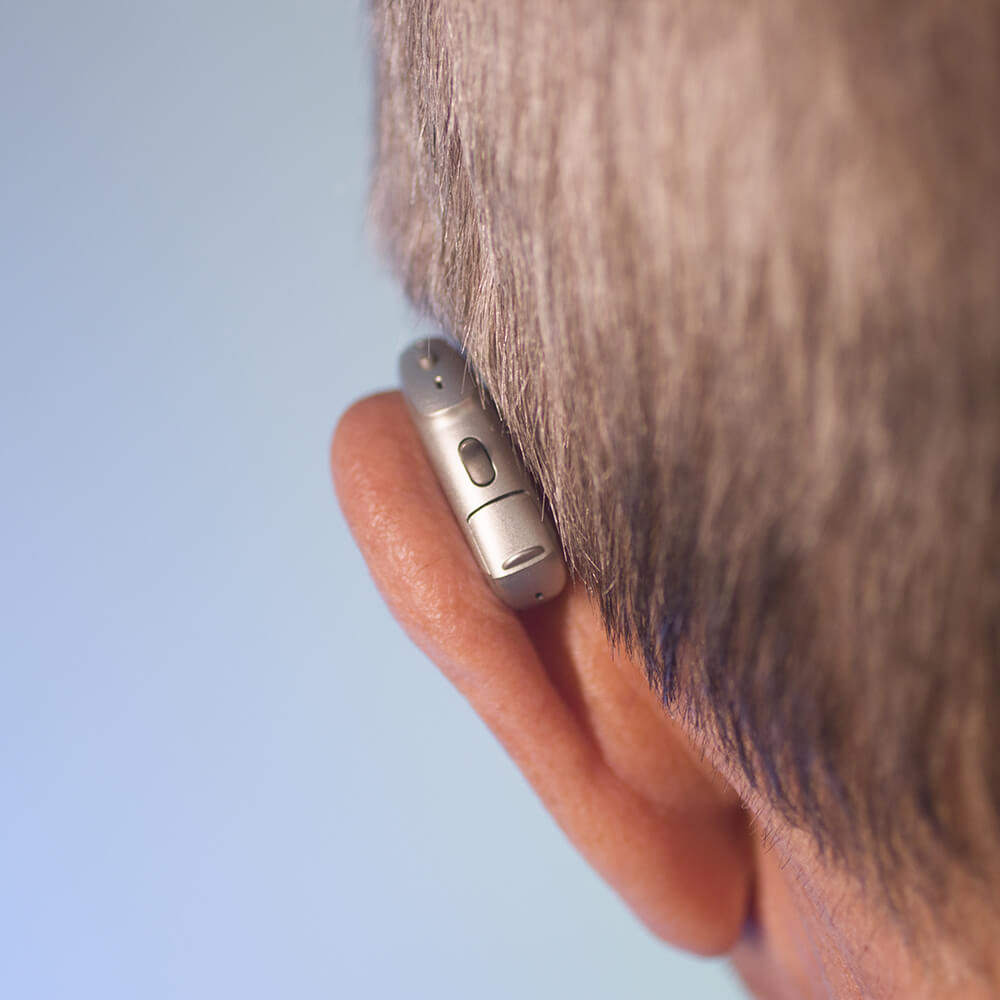Hearing Loss Overview
Hearing is a dynamic process that involves not just the ear's reaction but also the ability to understand words. Hearing loss is a growing problem worldwide, affecting people of all ages. It can be caused by noise, age, and as side effects of other conditions.
Here are some facts about hearing loss:
- About 28 million Americans suffer hearing loss.
- The rate of hearing loss increases the older people get. Approximately 30 percent of people aged 65 or over and 40 percent of those aged 75 or over suffer hearing loss.
- Men have a higher risk of hearing loss than women, but they are less likely to seek help.
- Hearing aids are used by only 1 out of 5 people who would benefit from them.
Types of Hearing Loss
There are three main types of hearing loss.
Conductive hearing loss occurs when something prevents the proper transmission of sound from the outside into the inner ear. It can be caused by earwax or fluid accumulation due to an ear infection or other diseases.
Sensorineural hearing loss occurs when there is an issue with the inner ear, which prevents sounds from being picked up and transmitted to the brain.
A combination of the above two is called a mixed hearing loss.
Signs of Hearing Loss
Hearing loss is an invisible condition, which means it often goes unnoticed. However, there are tell-tale signs of hearing loss, which include the following:
- You have difficulty understanding what is being said in a conversation.
- You complain that people frequently murmur or slur their words.
- You often ask people to repeat words or phrases, even if they think they are speaking loud enough.
- You listen to music more loudly than others in the room.
- You avoid group meetings, social events, or family meetings because of the difficulty of understanding others.
- You've experienced a ringing in your ears when it's quiet.
If you have recognized some of these signs of hearing loss in your own life, it is important to take a hearing test. A thorough hearing assessment will determine whether a hearing loss is present, and if so, the type, degree, and configuration.

What Happens If You Don't Treat Your Hearing Loss?
Hearing loss can have a significant impact on a person's mental, physical, and social wellbeing. People who suffer are more likely to experience symptoms of depression. We often feel more frustrated with friendships/family relations, experience a lower overall level of wellbeing, and are more likely to avoid activities that we once enjoyed.
It can also lead to impaired memory and the ability to learn new tasks that indicate a cognitive decline. Recent reports from Johns Hopkins and the National Institute of Ageing Academics suggest that older persons with hearing loss are more likely than those with hearing loss to develop dementia over time.

Treatment for Hearing Loss
Hearing aids are the most common choice for most people. Hearing aids reduce hearing difficulties and provide greater sound clarity.
If you are fitted for hearing aids, you could benefit from an increased ability to understand others in different environments, helping you reconnect with friends, family, and loved ones.
Hearing aids can provide a lot of social support, but the process requires a transitional period on the part of the user. Knowing what to expect can help this process considerably. We invite you to get to know our team and learn more about what you can gain from wearing hearing aids.
